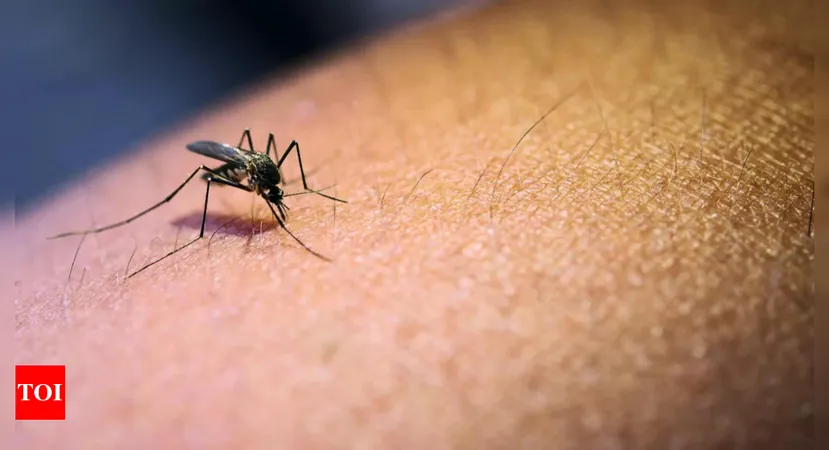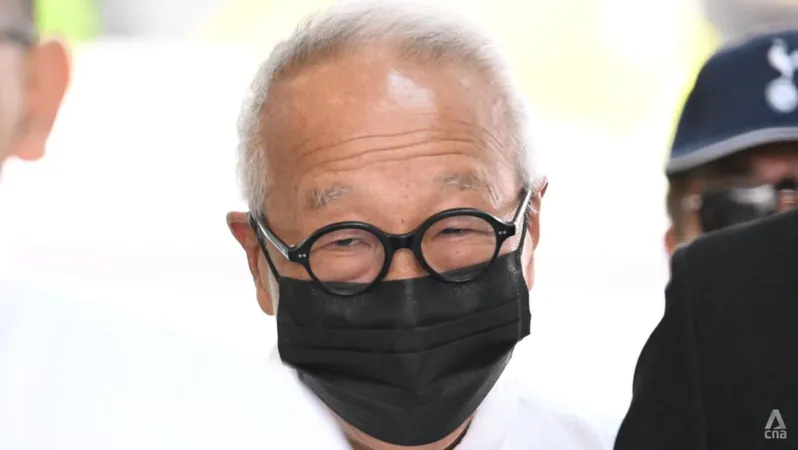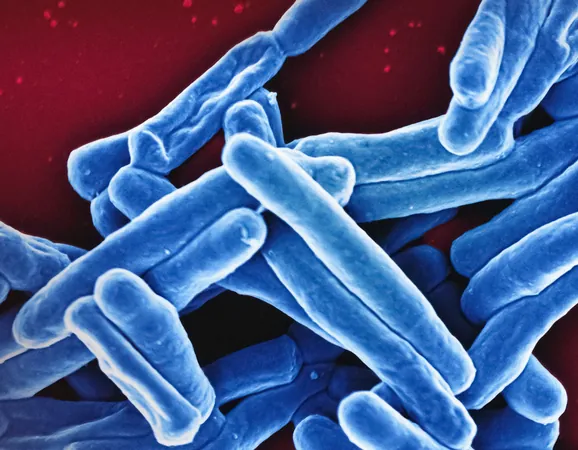
Miraculous Recovery: 71-Year-Old Doctor Survives Rare Malaria-Related ARDS with ECMO Support
2024-11-15
Author: John Tan
Overview of the Case
In an extraordinary medical case, a 71-year-old doctor from Kolkata, Dr. Anjan Chatterjee, defied the odds by recovering from severe Acute Respiratory Distress Syndrome (ARDS) triggered by a rare manifestation of malaria. This case marks a pivotal moment in medical history, as the use of ECMO (Extracorporeal Membrane Oxygenation) support is seldom required for malaria patients.
Admission and Initial Assessment
Dr. Chatterjee, a renowned consultant in Obstetrics and Gynaecology specializing in infertility, was admitted to the Emergency Department of Manipal Broadway on October 21 after a critical transfer from another facility. He had been battling high-grade fever, severe joint pain, and loss of appetite for several days. Initial tests at his previous hospital indicated a suspected case of Plasmodium vivax malaria alongside cardiac complications.
Deterioration and ECMO Decision
Upon admission, Dr. Chatterjee's respiratory condition rapidly deteriorated, prompting the medical team to place him on Non-Invasive Ventilation. Unfortunately, his oxygen saturation levels continued to decline, leading to the decision to initiate mechanical ventilation. After assessing the dire situation, the team, guided by the principles of life-saving care, decided on October 23 to implement Veno-Venous ECMO—a last-resort solution for patients in severe respiratory distress.
Expert Insights
Dr. Susruta Bandyopadhyay, Head of ICU and Critical Care, highlighted the unusual nature of this case, explaining that while vivax malaria can occasionally lead to ARDS, it is extremely rare. “We had to put him on ECMO for about ten days,” he noted. The complexity of the case resulted in the formation of a multidisciplinary team of doctors to ensure comprehensive care.
A Remarkable Recovery
Dr. Subhasis Ganguly, an internal medicine specialist involved in the treatment, remarked, “Dr. Chatterjee’s recovery is not only remarkable but also a testament to the advanced medical technologies and team collaboration in challenging cases like this.”
Reflections from the Patient
Reflecting on his ordeal, Dr. Chatterjee shared his experience, saying, “One day, I started feeling feverish, and after being tested, I was diagnosed with malaria. I don’t remember much from those five days, but I am immensely grateful to the entire Manipal team for their dedication and support.”
Conclusion
This unusual case serves as a crucial reminder of the unpredictability of diseases and the remarkable advances in medical technology. It also highlights the importance of swift intervention and a coordinated healthcare team in critical situations. Dr. Chatterjee’s journey emphasizes hope and resilience in the face of medical adversity, inspiring both healthcare professionals and patients alike.
Significance for Malaria Research
As malaria presents a growing challenge globally, understanding its varying manifestations is more crucial than ever. This case not only contributes to medical literature but also raises awareness about the potential severe complications associated with this disease, urging continuous research and improved treatment protocols.




 Brasil (PT)
Brasil (PT)
 Canada (EN)
Canada (EN)
 Chile (ES)
Chile (ES)
 España (ES)
España (ES)
 France (FR)
France (FR)
 Hong Kong (EN)
Hong Kong (EN)
 Italia (IT)
Italia (IT)
 日本 (JA)
日本 (JA)
 Magyarország (HU)
Magyarország (HU)
 Norge (NO)
Norge (NO)
 Polska (PL)
Polska (PL)
 Schweiz (DE)
Schweiz (DE)
 Singapore (EN)
Singapore (EN)
 Sverige (SV)
Sverige (SV)
 Suomi (FI)
Suomi (FI)
 Türkiye (TR)
Türkiye (TR)